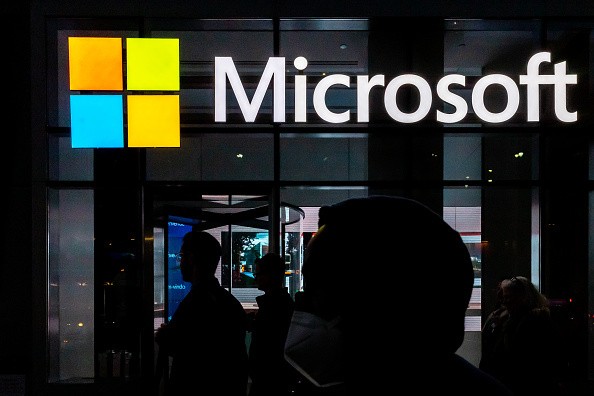New Microsoft Tech to Track Body Language in Meetings Raises Privacy Concerns
Microsoft had more plans on employee surveillance and privacy beyond managers tracking how often each worker checks their email or chats. Now, even each worker's body language can be monitored.
A newly surfaced patent from the tech giant described a system meant to predict "overall quality scores of meetings" using body language and other factors, reported GeekWire.
Microsoft will be using sensors, cameras, microphones, and software tools to determine a meeting participant's participation in a meeting.
Microsoft faced backlash over privacy concerns that may be sacrificed in place of a "productivity score."
Microsoft's Meeting Insight Computing System Shows 'Quality' of Meetings
Other than body language, the system will also look at parameters such as the number of people in the room, temperature, time of day, noise level, and/or facial expressions of meeting participants.

The tech company also said the system's sensors could record which invitees attend a meeting and speech patterns that are "consistent with boredom and fatigue."
Each participant's amount of time being active participants in a meeting will also be tracked.
According to Microsoft, the system will help predict how likely a group of colleagues can hold a "high-quality meeting."
Read also: Google to Discontinue Trusted Contacts App That Lets You Find Loved Ones' Location During Emergency
A copy of the patent application obtained by Newsmax said "conventional computerized scheduling systems lack real-world context," so managers may be left unaware that they are "attempting to schedule non-optimal meetings.
"This lack of optimization could lead to meetings that are "unproductive at best," Microsoft said, wanting to avoid or modify these kinds of meetings.
The company added that the feature could be used in both in-person and virtual meetings or hybrids of the two.
Microsoft Patent May Be Older Than Two Years
Some of the people listed in Microsoft's patent filing were from companies' Azure IoT and Microsoft 365 teams.
It also appeared to date back to at least two years inside the company, as it was related to a filing from 2018 and granted in August of this year.
Microsoft already introduced these kinds of software in the past. In a public demo last year, the feature was made prominent and attracted critics who said it was effectively an employee-surveillance tool, reported BBC.
Read also : Facebook Tweaks Algorithm to Promote Certain Sites Amid Surge in Election Misinformation
Before, Microsoft Office software and email apps can be monitored by the manager to keep track of individual workers.
But Microsoft argued that these features are not enabled by default, and the primary goal of the project was to simply identify shortcomings in I.T.
Companies don't always act on the patents they file, but they usually let the public know about what they have in store for the future.
Patents are not products and don't show any signs yet that Microsoft wants to roll out this hypothetical system.
Tech for Managerial Functions Could Leave Microsoft with Discriminatory Outcomes
In a report from the Trades Union Congress (TUC), it was said that the use of technology, including artificial intelligence (AI), for managerial functions has some dangers to it.
TUC policy officer Mary Towers said these kinds of systems pose "unfair and discriminatory outcomes for workers."
Data researcher Wolfie Christl also told The Independent that he found the tech "problematic" since it normalizes "extensive workplace surveillance in a way not seen before."
"Microsoft gets the power to define highly arbitrary metrics that will potentially affect the daily lives of millions of employees and even shape how organisations function," he added.
Microsoft has its own internal artificial intelligence ethics office and a companywide committee, so the AI products live by its principles of transparency and privacy.
Subscribe to Latin Post!
Sign up for our free newsletter for the Latest coverage!
© 2026 Latin Post. All rights reserved. Do not reproduce without permission.














